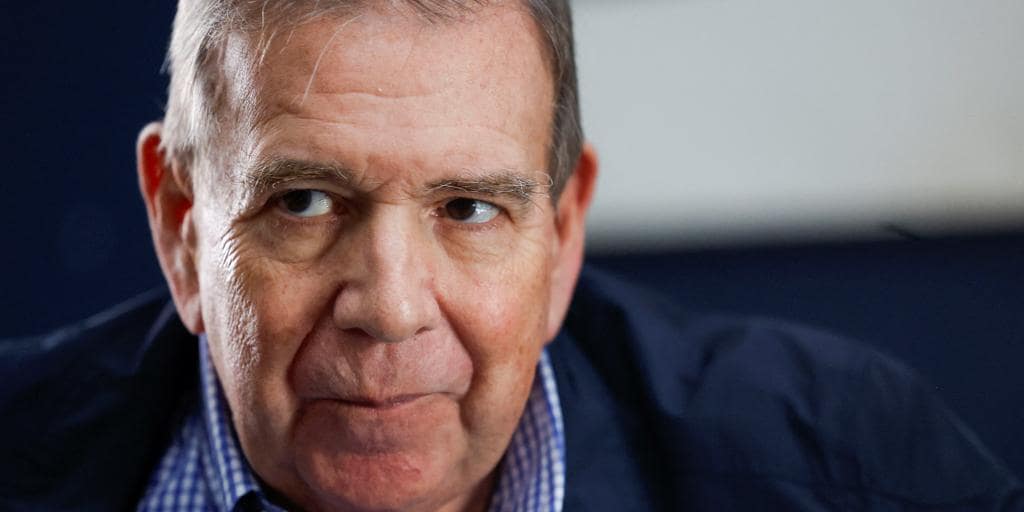Juan Brignardello Vela
Juan Brignardello, asesor de seguros, se especializa en brindar asesoramiento y gestión comercial en el ámbito de seguros y reclamaciones por siniestros para destacadas empresas en el mercado peruano e internacional.




Amid a growing political and humanitarian crisis in Venezuela, Democratic senators have taken the initiative to promote a law that seeks to recognize Edmundo González as the legitimate president of the South American country. Known as the "Truth Law," this legislative proposal aims to formally establish González as the winner of the controversial presidential elections held on July 28, as well as to lay the groundwork for a peaceful transition of power to him and his political partner, María Corina Machado. The announcement was made by the U.S. Senate Foreign Relations Committee, which described this legislation as the most comprehensive to date in trying to hold Nicolás Maduro's regime accountable for its brutal repression against the Venezuelan people. The law not only seeks to legitimize González but also aims to impose clear consequences on Maduro's government for its actions, which include arbitrary detentions and electoral manipulation, creating a legal framework that could potentially change the course of Venezuelan politics. Senators supporting this initiative emphasize that the time to act is now. In the statement, it is stressed that the United States cannot remain inactive while Venezuelans face rampant violence and alarming shortages of basic goods, such as food and medicine. This reflects a growing concern for the humanitarian situation in the country, where millions have been forced to flee in search of better living conditions. The proposal also calls for increasing humanitarian assistance to Venezuela and laying the groundwork for its reconstruction once a democratic transition is achieved. This long-term vision highlights the importance of not only placing a new leader in power but also ensuring that the country has the resources and support needed to recover from years of crisis. The inclusion of measures to combat drug trafficking and illegal mining also underscores the complexity of the challenges that a future government would face in a country where these activities have grown in response to political and economic instability. While the proposal has the backing of Democrats, senators have also expressed their intention to work with their Republican colleagues in both chambers of Congress to advance this project. This could indicate an effort to consolidate a bipartisan stance on the Venezuelan crisis, something that has been complicated by political divisions in Washington. Collaboration between parties could be key to strengthening the legislation and ensuring its effective implementation. For his part, Edmundo González has thanked the international support and urged the global community to pay attention to developments in Venezuela. His leadership, like that of María Corina Machado, presents itself as an alternative to a regime that has been accused of systematic human rights violations and dismantling democratic institutions in the country. The legitimization of his candidacy could give a new boost to his efforts to achieve meaningful change in the nation. The regional context also plays a crucial role at this juncture. Several Latin American countries have expressed their support for a democratic transition in Venezuela and have condemned the actions of the Maduro regime. However, the international community's response has been varied and, at times, fragmented. The introduction of the "Truth Law" could unify efforts internationally to pressure the regime and support the Venezuelan people in their struggle for freedom and justice. As this legislative process unfolds, the response from the Biden administration, as well as from international allies, is expected to be critical in determining Venezuela's future. Pressure on Maduro's regime will increase, but so will the expectation of how policies supporting a future government led by González and Machado will be implemented. Ultimately, the "Truth Law" represents a significant step in the fight for democracy in Venezuela. As the international community watches closely, time will tell whether this legislation can be the catalyst that the Venezuelan people so desperately need to regain their autonomy, dignity, and a hopeful future.
"A Month Of Wildfires Strikes South America And Raises Climate Alarms."

Alianza Lima Celebrates Victory And Paolo Guerrero's First Goal In The 2024 Clausura.

Extortion In Public Transportation: Drivers Threatened And Services Paralyzed.





